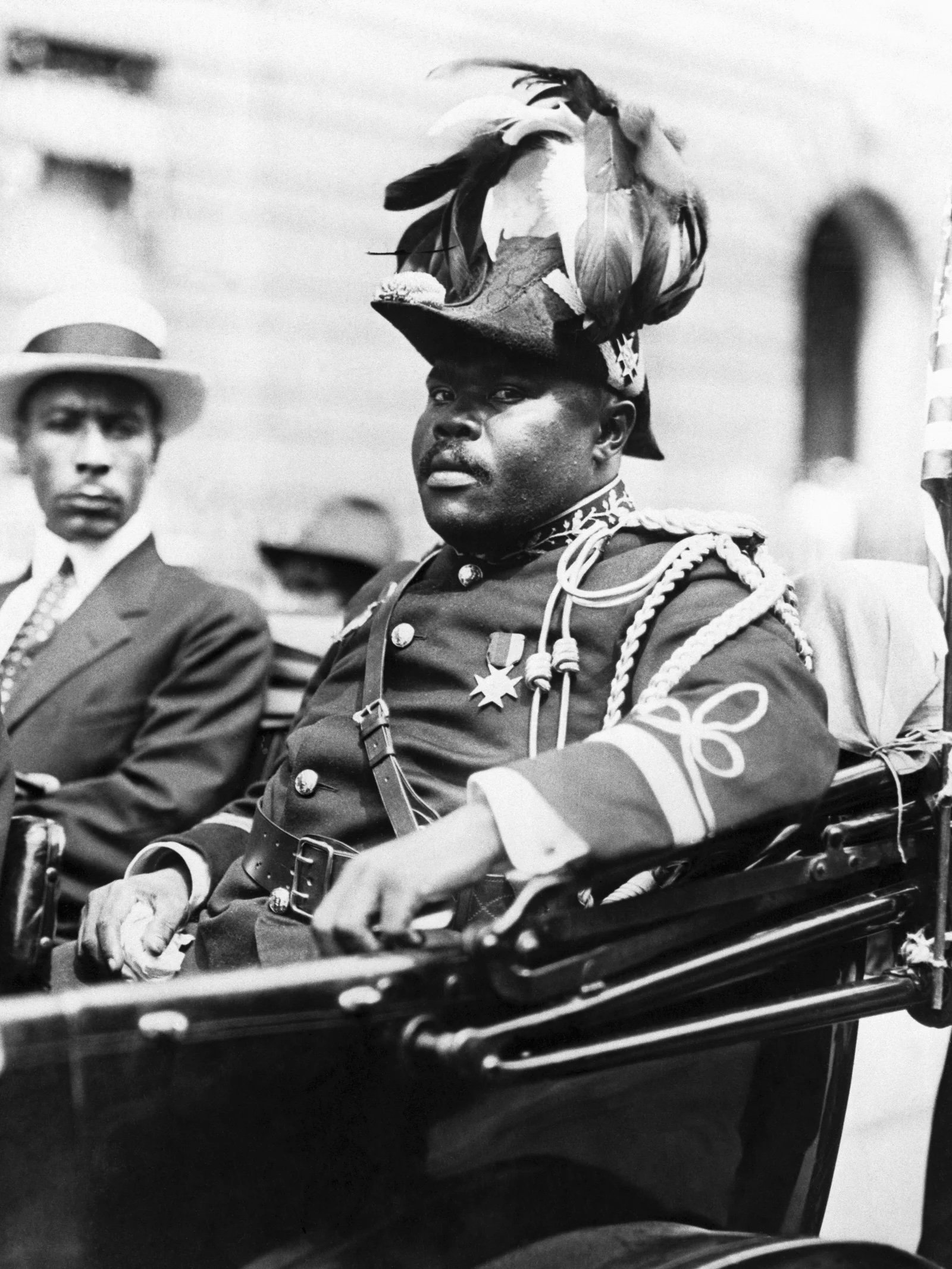Marcus Garvey: The Founding Father of Black Pride
Marcus Garvey was a Jamaican-born Black nationalist and political activist, who became a powerful figure in the early 20th century. He advocated for Black pride, the unification of Black people and living independently of other races. In his prime, his activism and ideology known as Garveyism, amassed a global following of over 4 million people. Garvey was a controversial character, with rhetoric and associations considered extreme by certain groups. However, this hasn’t negated his lasting influence and legacy as the progenitor of the phrase “Black is beautiful” and the Black pride movement as a whole.
Marcus Garvey
As an icon, Marcus Garvey is just one of seven historical figures to be honoured as a Jamaican National Hero. In 2012, the Government of Jamaica also declared Marcus Garvey Day on August 17th, which is celebrated in different parts of the world, including Harlem. For many, he is a symbol of the fight against oppression and Black empowerment. In one of the most recognisable reggae songs of all time, Redemption Song, Bob Marley pays homage to Garvey’s powerful quote:
“We are going to emancipate ourselves from mental slavery because whilst others might free the body, none but ourselves can free the mind. Mind is your only ruler, sovereign. The man who is not able to develop and use his mind is bound to be the slave of the other man who uses his mind.” Marcus Garvey
Marcus Garvey Early Years
Marcus Garvey was born in St Ann’s Bay, Jamaica on August 17th 1887. As the youngest of 11 children, the young Garvey was a curious and avid reader. He left school at the age of 14 for an apprenticeship at a printers in Kingston, working there for a few years where he became a fully fledged employee. Unhappy with the working conditions, he joined the trade union and took a leading role in organising a strike for higher wages that went on for weeks. He was fired for his part in the strike and blackballed from further employment in the city. However, this would be his first taste of activism, the consequence did not deter him and set the stage for his legacy.
Universal Negro Improvement Association (UNIA)
Garvey spent two years travelling the Americas and London where racism, disenfranchisement and injustice of Black people in the diaspora felt not too dissimilar to what he felt back home in a colonised Jamaica. On his travels his experience birthed his vision for a global Black nation, independent of European colonialism. He believed that Black people could achieve economic independence and social equality through unity, self-help, and the development of their own businesses and institutions.
In 1914, he returned to Jamaica and founded the Universal Negro Improvement Association (UNIA). Within a few years UNIA grew into a massive organisation with branches across the Americas, Africa, and Europe. It was in America where he had the most prominence as part of a rising activist elite, with his founding UNIA base in Harlem, New York in 1917, during the iconic Harlem Renaissance era.
Garvey didn’t just speak about Black empowerment and Black economics he was about it, though a bevy of small businesses he provided job opportunities for the Black community. Most notably were the New Negro, a newspaper which told the stories of of heroes and African culture (we recognise a pioneer) and established the Negro Factories Corporation and the Black Star Line
Marcus Garvey, dressed in military garb, is driven around in New York City in 1922.
Black Star Line
Marcus Garvey and members of the UNIA founded the Black Star Line in 1919, to facilitate the Back-to Africa Movement and trade between Black nations. After three months of being incorporated, the first of four ships were bought, S.S. Yarmouth, which was renamed S.S. Frederick Douglass and adorned with the symbolic emblem of the company. Garvey had his sights on Liberia as the new capital of the UNIA and the repatriation of Black people.
Garvey’s Controversies
Garvey’s ideologies and rhetoric did have its opponents. A standout opponent was W.E.B Du Bois who advocated for integration and gradual progress, while Garvey emphasised separatism and immediate action. W.E.B Du Bois believed Garvey was a hindrance to the Black progressive movement.
Marcus Garvey’s Imprisonment
Garvey’s influence and following drew the attention of J Edgar Hoover, the Director of the Bureau of Investigation (BOI), the precursor to the FBI, who viewed him and his organisation as a threat to America.
In 1923, Garvey was arrested on charges of mail fraud related to the Black Star Line. His charges have always been considered politically motivated as we would see later with the FBI’s attempts to dismantle the civil rights movement and its leaders. Despite his supporters' efforts, he was found guilty and sentenced to five years in prison.
Influence in Jamaica’s Independence
In 1927, after serving part of his sentence, Garvey was deported to Jamaica. Whilst there he was part of the movement towards the country's independence, with UNIA operating on the island he helped to instil a strong sense of nationalism amongst Jamaicans, galvanising the people along with other leaders such as Manley and Bustamante.
Return to London
In 1935, Marcus Garvey returned to London. Despite being removed from the centre of his UNIA, he continued to advocate for Black empowerment. His failing health, that began whilst in prison made it difficult for him to do so with the same vigour he had built his movement on. After two strokes, Garvey died in 1940 at the age of 52.
Legacy
Garvey's ideology was essentially about Black pride. Were some of his ideals outlandish and divisive? Maybe. But his legacy is that his advocacy of Black pride is at the centre of Black identity around the world today. He has been immortalised by his words and the imprint of his vision amongst the Black global community.



